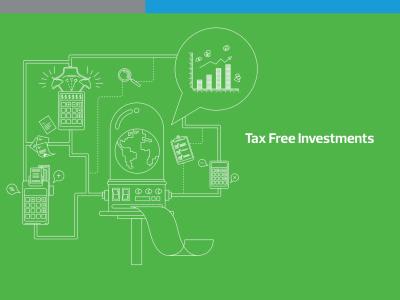What are Tax Free Investments (TFIs), should they be part of my investment portfolio and can they benefit me in any way in regard to reducing my tax liability?
This is a question often asked by individual taxpayers. We at RSM, are experiencing an increasing number of our clients investing in TFIs, evidence of which is seen from the IT3(s) Tax Certificates provided when preparing individual tax returns.
TFIs were introduced by National Treasury in South Africa from 1 March 2015 with the aim of encouraging savings in South Africa. South Africans are well known to have a low level of household savings in proportion to their debt. Investment in TFIs also leads to increasing the total savings in the economy, which promotes economic growth.
TFIs can be a way of saving towards a long-term goal, such as a deposit on a house, future tertiary educational needs or to supplement retirement savings. TFIs should be used as a long-term investment vehicle with the aim of making the best use of the compound effect of tax-free growth. In other words, the real benefits are realised over the long term.
The most important thing to remember about TFIs is that individuals do not pay income tax, dividends tax or capital gains tax on the returns from these investments. Subsequent withdrawals from these TFIs are also free of tax.
However, contributions made to TFIs are not deductible for income tax purposes. An individual cannot deduct contributions from annual income with the aim of reducing tax liability.
SARS sets an annual limit each year on the maximum amount an individual may contribute to a TFI. The limit for the 2021/2022 tax year of assessment is R36,000.
Investments in TFIs are limited to individuals and are not available to corporations and trusts.
An individual may contribute to more than one TFI, however, in aggregate the total amount invested is limited to R36,000 for that year of assessment. If an individual invests more than R36,000 in that year of assessment, then any contributions over R36,000 will be taxed at 40%. This penalty is added to the normal tax payable on assessment. If an individual invests less than R36,000, the unused portion does not roll-over to the subsequent year of assessment.
The maximum amount an individual may invest over their lifetime in a TFI is R500,000.
It should be noted that the returns earned on the investment are not included in the lifetime limit. There is no fixed investment period, but if an individual withdraws any of their funds, they cannot be replaced and will in effect reduce their annual and lifetime limits. Any further contribution will be regarded as a new contribution.
It should also be noted that investment in a TFI does not provide protection against creditors. The TFI will form part of the insolvent estate, therefore creditors would have a claim against the TFI. On the taxpayer’s death, the TFI is included in the estate and subject to estate duty. However, the returns from the TFI will not be taxed, nor will the estate be liable for CGT on date of death nor on withdrawal from the TFI.
TFI accounts may not be transferred from one person to another, an individual may not take out a loan against a TFI or cede it or use it as any form of security. It cannot be used as an account for debit orders or stop orders, credit card or debit card payments, nor accessed by an ATM.
One good reason for investing in a TFI is to supplement retirement savings, as a TFI provides not only tax free growth but also tax-free withdrawals. Few South Africans retire with enough savings to support themselves in retirement. TFIs can also be useful in increasing the taxpayer’s total offshore or specific asset class exposure, based on their investment goals. Individuals can also gain access to the stock market through TFIs in selected Exchange Traded Funds (ETFs).
A person may open a TFI on behalf of their minor child. However, always remember the annual donations tax threshold of R100,000 per person.
Interest earned in a TFI will not impact the annual interest exemption available to natural persons. This is because interest generated from a TFI is tax-free, whilst interest earned on a normal savings account is taxable subject to the annual exemption up to R23,800 per year for individuals under 65 and up to R34,500 for individuals 65 and older.
What types of TFIs can I invest in?
- Fixed deposits (Money market or Fixed term bank accounts)
- Unit trusts (Collective Investment Schemes)
- Retail savings bonds (from National Treasury)
- Certain endowment policies issued by long-term insurers
- Linked investment products
- Exchange traded funds (ETFs) that are classified as Collective Investment Schemes
How do I invest in a TFI?
Contact a Financial Service Provider about investing in a TFI. Service providers can be any stockbroker, asset manager, insurer, bank or linked investment service provider.
In summary, the decision on whether to invest in a TFI should be based on age, income, current investment portfolio and retirement needs. It is most effective when incorporated as part of an existing investment portfolio rather than considering a TFI on its own. The TFI should be seen as a long-term investment due to the compound effect of tax-free growth. Discuss your individual investment needs and tax concerns with your Financial Advisor and Tax Practitioner before investing in a TFI.
Investment today, is a source of income tomorrow.
SARAH VON HOLDT
Individual Tax Compliance Officer, Cape Town




